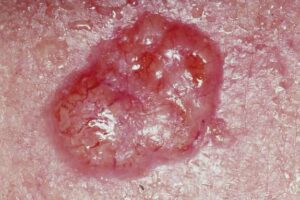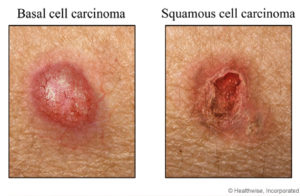
Skin cancer (basal cell carcinoma, squamous cell carcinoma, and melanoma) rates are rising. Skin cancer is the most common cancer in the U.S., with current estimates that 1 in 5 Americans will develop skin cancer in their lifetime. Unfortunately, a person can get repeat skin basal cell and squamous cell cancers. Yikes!
Interestingly, since 2015 studies are finding that a form of vitamin B3 called nicotinamide are a skin cancer preventive (chemopreventive) medication. That is, taking nicotinamide supplements reduces the risk of basal cell and squamous cell cancer development.
A recent study found that persons who already had one skin cancer removed, can significantly reduce the risk of a second skin cancer occurring if they ingest 500 mg of nicotinamide two times daily for more than one month. An overall 54% reduction in another skin cancer occurring in this group!
The biggest reduction of another skin cancer occurring was in those who had a squamous cell carcinoma removed. However the preventive effect was reduced in those who already had multiple (2 or more) skin cancers.
Excerpts from NPR: Vitamin B3 can help protect against skin cancer. Here's who may benefit
Doctors who perform skin cancer surgeries often recommend nicotinamide — which is a form of Vitamin B3 — to their patients. It's been shown to protect cells from UV radiation damage. ...continue reading "Taking Vitamin B3 Reduces the Risk of Another Skin Cancer"

 More studies need to be done, but the possibility of simply taking 500 mg twice a day of
More studies need to be done, but the possibility of simply taking 500 mg twice a day of  Credit: WebMD, Healthwise, Inc.
Credit: WebMD, Healthwise, Inc.